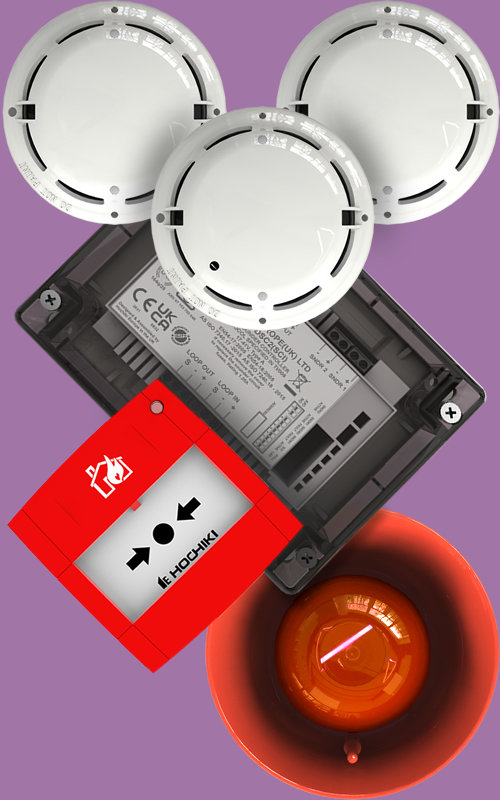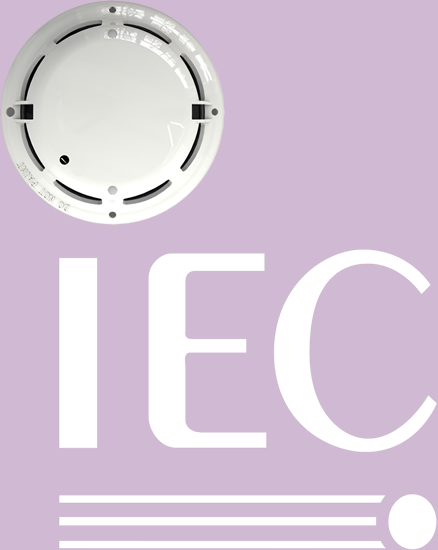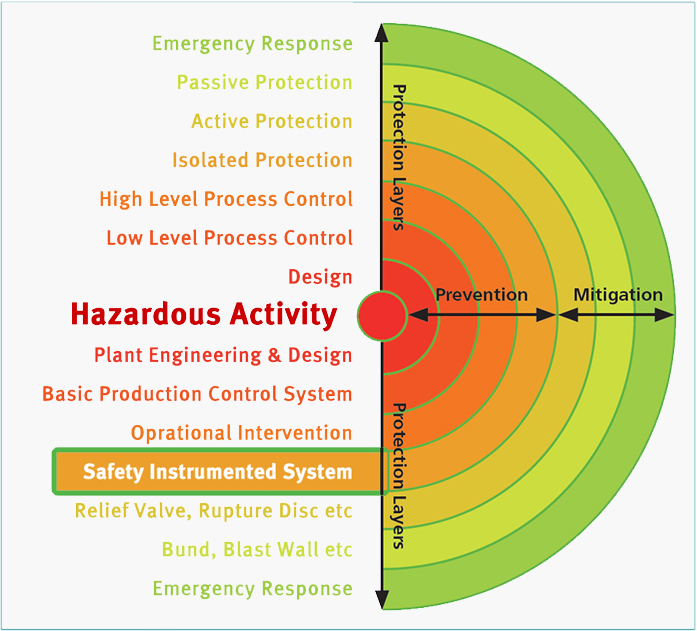SIL2 Capable
An Overview of Hochiki's SIL2 Capable Fire Detection Range.
An Overview of Hochiki's SIL2 Capable Fire Detection Range.
Hochiki Europe (UK) Ltd has introduced a range of intelligent addressable devices independently evaluated and certified to SIL2 (Safety Integrity Level) with respect to their primary function (Detection, Manual Call Point, Audio Visual etc) under IEC61508 Functional Safety of Electrical/Electronic/Programmable Electronic Safety-related Systems.
The SIL2 system offering consists of a SIL2 capable Addressable Fire Control Panel, a suite of intelligent, addressable sensors, a range of Input/Output Modules, Manual Call Points and an electronic, loop-powered Wall Sounder.
There are three models in the SIL2 sensor range offering optical smoke detection, heat detection and a multi-criteria detection (smoke and heat).
All models require just one, electronics-free mounting base, making ordering, stock-holding and installation simple and efficient. The sensors are electronically addressed in seconds using a hand-held programmer via Hochiki’s ultra-reliable ESP protocol, so no fiddly mechanical addressing on site.
Subtle case markings identify which sensor model is installed at a glance and all models come in a choice of white or ivory casings to perfectly blend in with any project.
Every device in the range, including the SIL2 fire control panel runs on the world-renowned ESP open protocol which comes with features such as extended addressing, sub-addressing, adjustable sensor sensitivity and drift compensation.


SIL is an acronym for Safety Integrity Level, and is a system used to quantify and qualify the requirements for Safety Instrumented Systems.
The International Electro-technical Commission (IEC) introduced the following industry standards to assist operators with quantifying the safety performance requirements for hazardous operations:
These standards have been widely adopted in the hydrocarbon and oil and gas industries as a means of improving safety and availability of Safety Instrumented Systems.
Safety Integrity Levels are part of a larger scheme called Functional Safety that deals with techniques, technologies, standards and procedures that help operators protect against hazards. Simply put, SIL levels are targets applied to the reliability and performance of the safety systems used to protect hazardous activities such as hydrocarbon refining or production.

There are four SIL levels. The higher the perceived associated risk, the higher the performance required of the safety system and therefore the higher the SIL rating number.
Once the scope of an activity is determined, the operator can identify the possible hazard(s) and then assess their potential severity. The risk associated with a hazard is identified by assessing the likely frequency of occurrence and the potential consequences if the hazard is realised.
The operator must then assign a number for the severity of consequence and frequency.
The figure left shows multiple layers of protection are used to develop the required safety strategy. Safety Instrumented System has been highlighted because this is the layer that applies to Hochiki's SIL 2 capable fire detection equipment.
The SIS assists in reducing the frequency of the likely manifestation of the hazard and therefore improves the reliability of the system. The consequence of a failure is not addressed by SIS but by other aspects of the risk reduction strategy.
These numbers are then entered into a matrix (see example right) to allow the operator to assign the required SIL rating to protect against the hazard.
Many tools are available to assist an operator with this process, for example HAZOP (Hazard & Operability) software.
Our SIL 2 capable range of products has been independently assessed by Engineering Safety Consultants Limited and is considered capable for use in a SIL 2, low demand Safety Function with regard to random failure rates.
Individual certificates are available to download, see below.

Benefits

Approvals
All of the SIL products are approved to SIL Level 2 by the International Electro-technical Commission.

Quality
High quality products ensures long term reliability.

Wide Range
Hochiki's SIL offers a diverse range of products, including both addressable and conventional products suitable for many applications.

Compliant
The SIL range has been independently assessed by Engineering Safety Consultants.
Enquire now
To contact us please fill out the form below